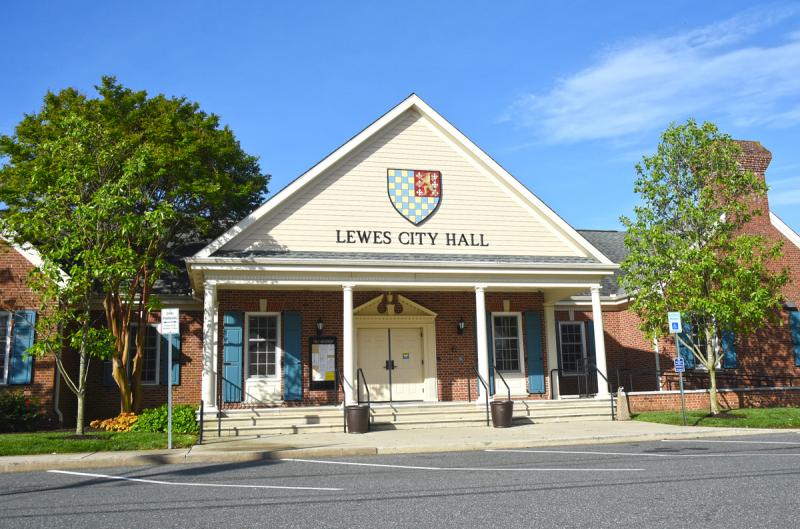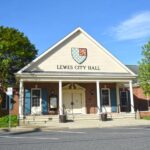-
 play_arrow
play_arrow
Radio Rehoboth

Legal accessory dwelling units are a step closer to reality in Lewes after the city’s planning commission recommended a new ordinance to mayor and city council.
The unanimous vote took place at the commission’s May 15 meeting. The panel’s housing subcommittee spent months drafting the measure. Its mission was to try to create more long-term, affordable, workforce housing in the city.
The ordinance defines an ADU as a conversion of an existing dwelling unit into two living spaces or units, attached to or detached from the main dwelling, such as a detached garage or converted portion of a garage.
“We started out with what was a crying need here,” said Commissioner Bob Heffernan, who chairs the housing subcommittee. “There are people who have a job, or two, and cannot afford to have a place to live.”
The provisions include:
• No more than 40 ADU permits issued in the first year from the effective date. An unlimited amount may be issued after that
• The property owner must live in the main house or ADU
• One additional off-street parking space would be required
• An ADU may use the same sewer service and meter as the main home.
The property owner may be exempt from the city’s gross rental receipts tax if they offer affordable rents: efficiency, maximum of $1,000 per month; one bedroom, maximum of $1,200 per month; two bedroom, maximum of $1,400 per month.
“We’ve lived here long enough to remember a time when people who worked in the city lived in the city,” said Commissioner Debra Evalds. “We need to make those opportunities happen again.”
The city has acknowledged there are already several ADUs in town. The goal would be to bring those units into compliance with the proposed ordinance.
Mayor and city council will likely schedule a public hearing on the proposed city ADU ordinance.
Sen. Russ Huxtable, D-Lewes, met with the housing subcommittee on two occasions to discuss Senate Bill 23, the ADU bill he introduced this legislative session.
The bill would require local governments to permit the construction of ADUs within their jurisdictions. The goal is to create more housing across the state, not necessarily affordable housing.
SB 23 is currently being considered in committee.
Huxtable also introduced SB 22, which would establish the Delaware Workforce Housing Program. It would allow developers to apply for grants to cover up to 20% of capital costs for ADUs they create.
Wetlands buffer ordinance
The commission also unanimously recommended a wetlands buffer ordinance.
The proposed ordinance was designed by the commission’s environmental subcommittee to set standards for identifying wetlands, delineating wetlands boundaries and establishing wetlands buffers.
Tidal wetlands would require a 100-foot buffer. Nontidal wetlands would require a 50-foot buffer.
“We are a coastal community; we have resiliency issues, and this is one of them. We’re doing this to protect the wetlands and personal property,” said Amy Marasco, chair of the environmental subcommittee.
“We had a subcommittee member who told the story of growing up playing baseball on a field off of Cedar Street. It’s now wetlands. It is happening here,” Heffernan said.
The proposed ordinance applies to new construction.
The full ADU and wetlands ordinances can be found at lewes.civicweb.net.
Staisey steps down
At the beginning of the May 15 meeting, commission Chair Nancy Staisey announced she is stepping down. Staisey has served on the panel for four years.
“When I came on board, I thought, ‘Won’t it be great to learn new things.’ It’s been a steep learning curve,” she said.
On May 20, mayor and city council will consider the appointment of Bill Wolfe to fill Staisey’s term. They will also consider Marylinda Maddi to fill Marasco’s term on the commission.
Marasco will be sworn in to city council the same day.
Go to Source:https://www.capegazette.com/article/lewes-planners-recommend-adu-wetlands-ordinances/275426
Author: Bill Shull
Written by: RSS
Chart
Top popular

News Briefs 10/17/23
Board of Commissioners Workshop & Special Meeting – November 6

Six Sussex road projects considered in latest CTP
Knicks vs. Cavaliers prediction, odds, line, spread, time: 2023 NBA picks, Nov. 1 best bets from proven model
Tamar Braxton Says ‘Tamar 2.0’ Era Is More ‘Grown Up’ (Exclusive)
Copyright 2023 East Sussex Public Broadcasting, Inc.






